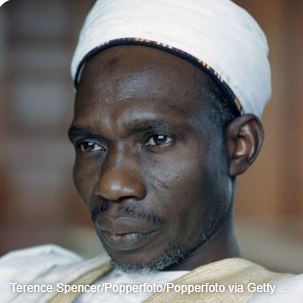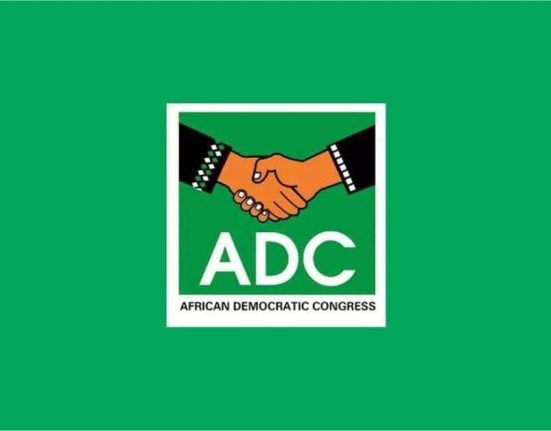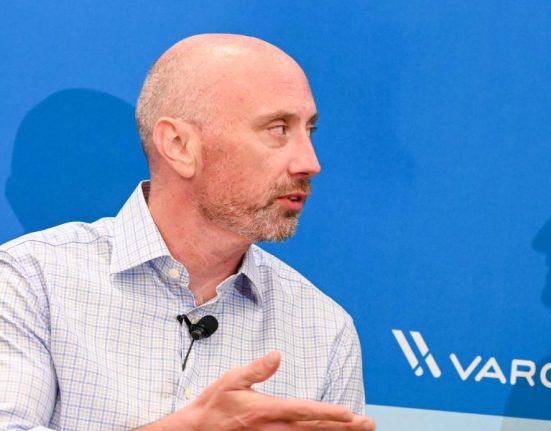
By Hon. Femi Kehinde
In the summer of 1963, Abubakar Tafawa Balewa was on his only annual leave as Prime Minister of Nigeria. He did not go to London, Paris, or Washington to enjoy his annual vacation, but rather went to his Tafawa Balewa village in Bauchi. A British photojournalist came to interview the Prime Minister, learnt the Prime Minister was enjoying his annual leave and asked for his contact overseas. The journalist was amazed when he learnt that the Prime Minister was enjoying his annual leave in his Tafawa Balewa village. As a curious journalist, he took a train ride from Iddo (Lagos) to Jos and another train ride from Jos to Bauchi from where he boarded a taxi to the Prime Minister’s village.
In Tafawa Balewa village, there was no visible evidence of the presence of a very important personality in the village no police or military presence or convoy of cars or array of visitors. Curiously again, he saw a farmer on a donkey carrying bale of sugarcane and asked the poor farmer if he knew the Prime Minister and quite unexpectedly, the peasant farmer, equally answered the journalist that he had just left the Prime Minister and had just dropped some sugarcanes for him. Curiously again, the foreign journalist asked the farmer to lead him to Abubakar’s house and he gladly obliged. Amazingly, without the trappings of office, he met the most powerful Nigerian then, sitting on the native floor mat, enjoying the sugarcane gift with his children. Those were our leaders of yester-years simple, humble, and of moderate disposition.
Sir Abubakar Tafawa Balewa, the first Prime Minister of Nigeria was born in the small village of Tafawa Balewa in the present day Bauchi State, in the North Eastern part of Nigeria in December 1912, of a very humble parentage; just a commoner, from the Jese ethnic group, of the Hausa stock. He was of a moderate background and moderate education. After leaving Bauchi Provisional School, he proceeded to Katsina Higher College in 1928, and qualified as a teacher in 1933, and was at the Institute of Education, University of London (1945-1946), on a one-year scholarship.
Abubakar foraged into public consciousness by joining the Bauchi discussion circle a forum for political reforms and debates. He was in the Nigerian Parliament between 1946 and January 15, 1966, during which he served as Minister of Works in 1952 and Minister of Transport in 1954 and as a member of the biggest party in the Federal Parliament, he was on 2nd September 1957, appointed the first Prime Minister of Nigeria.
At the time he was murdered in the January 1966 coup, he did not leave behind a sprawling mansion in Lagos nor in Kaduna. He had only a moderate house in Bauchi and a small country home in Tafawa Balewa village, after being in the Parliament for 20 years. Balewa, a Knight and commander of the Order of British Empire (OBE) was also awarded Honorary Doctorate Degree from the University of Sheffield, UK in May 1960.
Abubakar was a devout Muslim, a simple man and popularly known as “Balewa the good” and “The man with the Golden voice” according to the Daily Mirror Editorial of the 17th June 1965. Tafawa Balewa, having founded the Bauchi Discussion Circle in 1943, which had honed his public speaking skill, he was also in 1948, Vice President of Northern Teacher’s Association and in 1949, alongside Dr. R.B Diko, he organized the Northern People’s Congress (NPC), originally conceived as a cultural organization to become a political party in 1951.
Balewa as Prime Minister of Nigeria, had no first Lady and did not patronize or cultivate such office. He had four wives Jumma, Ummah, Zainab, and Laraba. He was confident, elegant, charismatic, matured, and sophisticated. The British press described him as disarmingly patient and reasonable.
Let us take cursory look at Balewa’s star studded Ministers and colleague Parliamentarians – Jaja Wachuckwu (Foreign Affairs), Raymond Njoku (Transportation), Aja Nwachukwu (Education), K.O. Mbadiwe (Commerce), S.L. Akintola (Communications), Festus Okotie-Eboh (Finance), J.M. Johnson (Internal Affairs), Ayo Rosiji (Health), Mohammed Ribadu (Mines), Musa Yar’Adua (Lagos Affairs), Prof. Teslim Olawale Elias (Justice), Richard Osuolale Akinjide (Education).
Parliamentary Democracy makes governance less attractive and enhances quality of governance. A comparative analysis of the Hansard (Parliamentary Proceedings) of the First Republic and our current Republic, would notice a great decline in the quality of debates, quality of members and parliamentary finesse. In retrospect, one would not but remember with fondest memory, Nigeria’s great public speakers of the olden days of yore – Herbert Macaulay, the great Zik of Africa – Dr. Nnamdi Azikwe, the immortal sage – Chief Obafemi Awolowo, the Sardauna of Sokoto – Ahmadu Bello, Dr. Kingsley Mbadiwe, Alh Maitama Sule, Jaja Wachukwu – the first Nigerian Speaker of the House of Representatives, Samuel Ladoke Akintola, Alvan Ikoku, Bola Ige, Aminu Kano, Earnest Ikoli, Late .Odemo of Isara – Oba Akinsanya, Prof. Eyo Ita, Late. Mrs. Funmilayo Ransome Kuti, J.O.J Okezie, Festus Okotie Eboh, Dr. Mike Okpara, Alh. Muhammed Ribadu, Raymond Njoku, Adegoke Adelabu Penkelemeesi and other eminent Nigerians.
In 1957, Irene Harriman, now a near nonagenarian (approaching ninety years) was one of Nigeria’s first set of verbatim reporters in the Nigerian parliament in Lagos alongside Mrs. Mosun Adesanya who later became a lawyer. By virtue of that position, she had worked closely with Tafawa Balewa as a member of the Parliament and Prime Minister of Nigeria. She was very close to the movers and shakers of the Nigerian Federal Parliament, and she had a vantage privilege of working at close quarters with Prime Minister, Tafawa Balewa.
In 1961, she was part of the entourage of the government lean delegation of ten top government officials like Jaja Wachukwu, Alh. Shehu Shagari, Chief T.O.S. Benson and some few others that went with Prime Minister Tafawa Balewa to Washington on the 21st of July 1961 on a one week state visit, on the invitation of the then U.S president – John F. Kennedy. In the U.S, he addressed a joint session of the United State Congress in Washington D.C. While addressing the congress, Tafawa Balewa in his sonorous voice said extempore “A fire of freedom once alight will not go off again in our country”, and this was met with thunderous applause and standing ovation by the congress men, and also to the great delight of President J.F. Kennedy. Irene Harriman prepared the speech which Tafawa Balewa read extensively and sometimes extempore, with confidence, gait, strength, extraordinary brilliance and panache. In 1961, on this visit, she witnessed cheering, exultant and jubilant Americans and Nigerians welcoming Tafawa Balewa to the US waving American and Nigerian flags on the streets. According to Irene Harriman, “I was in that motorcade, Balewa had been invited to the United States by President John Kennedy and became the first and only Nigerian leader to address a joint sitting of the United States Congress. Balewa’s speech, delivered in his sonorous voice which drew US senators and congressmen to their feet was prepared by me during a stopover in London”.
She further said: “When we did the stopover in London, the Prime Minister sent for me with the Queen’s car that was given to him to use and that I should come and take down his speech that he was to read at the Capitol. He called me to his lodging in St James Park where he was lodged and provided with a Rolls Royce with the Queen’s ensign. When I finished, he asked “Young lady, where are you going now?” and I said “I am going to meet my cousin, Bridget Esiri.”. He now called his aide-de-camp, he said he should take me to the car that the queen gave him to use and to take me wherever I was going.”
Harriman spoke in the reflection of not just the Prime Minister, but also of the reverence Nigeria once enjoyed in the international arena. However, Mrs. Harriman’s working relationship with Balewa was ad-hoc as she was not his direct staff. She had been attracted to him during a summit of African countries in Monrovia, Liberia, known as the Monrovia Bloc that presaged the Organization of African Unity (OAU).
According to Irene Harriman, “What brought me to follow the Prime Minister was that before that trip, there was a Conference in Monrovia. Three other male colleagues and I were the ones who covered the Conference and were at that point the only verbatim reporters in Africa. Nigeria supplied the verbatim reporters as nobody else, in at least, South of Sahara. I was the only female on that trip and was wearing green, white green, Itsekiri attire, throughout. I think the delegation headed by the prime minister was so happy and I am sure that may have been a factor why he requested for me.”
Mrs. Harriman’s deployment to the National Assembly where she worked as a verbatim reporter, was an opportunity that brought her into close contact with some of the leading lights of the First Republic who often passed her in the corridors of parliament.
According to Irene Harriman, work was equally interesting and exciting. She said; “We worked, till 2.00 a.m. and sometimes, 3.00 a.m. we were there battling to get the Hansard ready for the following day. Work was especially tasking in those days; you had to finish your transcripts and hand them over to the editor. We prepared the Hansard, and by morning it was ready in the pigeonholes, we read what we did, and we took pride in what we did.”
Irene Harriman when asked about the legislators that impressed her in the parliament then, she said; “They were many, Awolowo was one of them, Tafawa Balewa, Enahoro, they were crème-de-la-crème. Maitama Sule, was one of the best, he even said he wanted to meet Hope Harriman (my husband) and he met him, Muhammadu Ribadu was a gentleman, and he was best friends with Okotie-Eboh. When he (Ribadu) died, Okotie-Eboh cried because they were quite close. Maitama Sule was a rascal! Young at heart, always cracking jokes. So, we often met along the corridors, the prime minister, and other MPs. Maitama Sule would make sure that he would say something to you to crack a joke, he was a lively person. The others would bow. For instance, if I met the prime minister, he would say in his sonorous voice, ‘hello, young lady!’”
Those were the days. Interestingly, Irene Harriman is the mother of Hon. Temi Harriman, former member of the House of Representatives representing Warri Federal Constituency in the House of Representatives, National Assembly, Abuja between 1999 and 2007.
Balewa’s sour point however, was his incapacity to stem the tide of Western Region crisis, which led to the treasonable felony charge and conviction of Chief Obafemi Awolowo and subsequently snowballed into the “Operationwetie” crisis and ultimately the collapse of his government in 1966.
Sir Abubakar Tafawa Balewa, in January 1966, hosted in Lagos, the emergency Commonwealth Prime Ministers Conference to discuss the crisis in Cyprus. His performance at the conference was quintessential Abubakar – brilliant, lucid, and intelligent. The Prime Minister of Great Britain, Harold Wilson who was also at the conference, and was impressed by Abubakar’s candor and conduct, had hinted him of the possibility of a Military Coup in Nigeria in January 1966 and had offered him political asylum in one of the British frigate on the Atlantic and subsequently a voyage to Great Britain by sea, but Abubakar, being a devout Muslim rebuffed the offer and remained unperturbed throughout the conference.
The Military eventually took over government of the Federal Republic of Nigeria on the 15th of January 1966 through a military coup d’etat, arrested Alh. Abubakar Tafawa Balewa, and murdered him. His slaine body was discovered in a bush somewhere along Otta in present day Ogun State. Segun Osoba, then an Ace Reporter got this scoop and published it in the newspapers. Chief Segun Osoba now Akinrogun of Egbaland was also former Governor of Ogun State.
Perhaps, the military coup of 1966 had thrown away the baby with the bath water.
May the soul of Sir. Abubakar Tafawa Balewa, Nigeria’s first Prime Minister and the man with the golden voice continually find peaceful repose with the Almighty Allah.
Vanguard News
The post Balewa’s vacation in retrospect: Remembering a better yesterday appeared first on Vanguard News.









Leave feedback about this